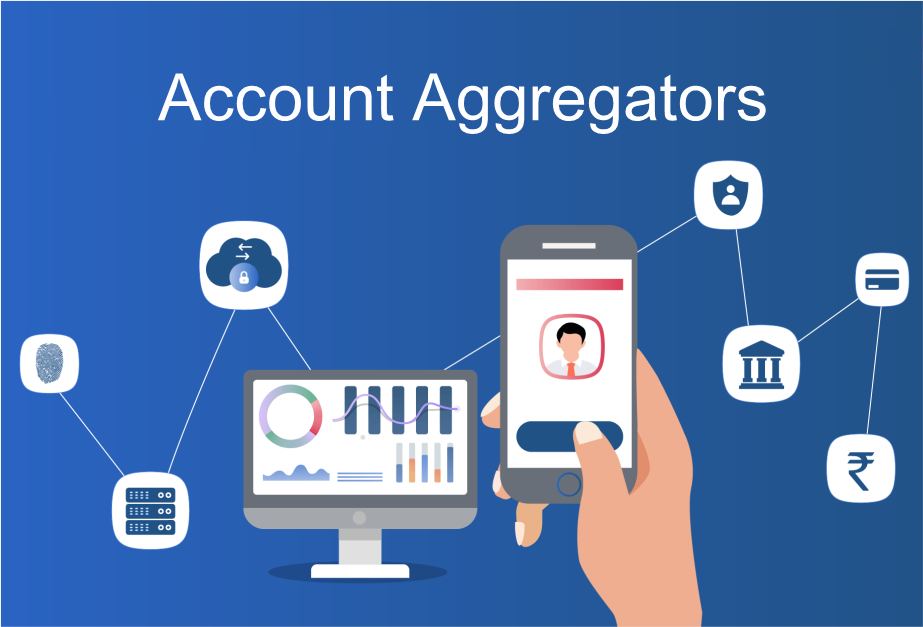Account Aggregators- Revolutionizing Information Exchange

In today's digital landscape, where data has become the new currency, Account Aggregators (AAs) are transforming the financial industry. AAs are pivotal in enabling more personalized and efficient financial services by facilitating secure and seamless exchange of financial information between individuals and institutions.
Understanding Account Aggregators
At the core of Account Aggregators is the principle of empowering clients with control over their financial data. Acting as trusted intermediaries, AAs collect digital financial data from banks, mutual funds, insurance companies, and other sources with the customer's consent. This data is then securely transmitted to relevant financial institutions, such as lenders or insurers, while adhering to the customer's preferences and legal requirements.
Key Players in the AA Ecosystem and Their Roles
The AA ecosystem comprises three main players, each essential in streamlining and safeguarding data exchange:
- Account Aggregators (AAs): These serve as central hubs for data exchange, ensuring that consumer data is shared only with consent and in compliance with regulations. AAs also play a crucial role in securing data transmission through encryption methods.
- Financial Information Providers (FIPs): Organizations like banks, insurance companies, and asset management firms that manage and maintain clients' financial information. Keeping data accurate and up-to-date is vital for AAs and Financial Information Users (FIUs) to make informed decisions.
- Financial Information Users (FIUs): Utilize data shared by AAs to offer personalized services such as credit reports, loan approvals, investment advice, and insurance solutions. By leveraging comprehensive financial data, FIUs can tailor offerings to meet individual client needs effectively. Regulation by Reserve Bank of India (RBI)
The RBI regulates Account Aggregators, ensuring compliance with regulatory standards and enhancing the security and reliability of data exchange processes. This regulatory oversight instills confidence in financial institutions and clients regarding data integrity and privacy.
Benefits of Account Aggregators
Account Aggregator services offer several benefits to both financial institutions and clients:
- Enhanced Customer Experience: AAs streamline data sharing, reducing paperwork and processing times for financial transactions, eliminating manual document submissions.
- Data Security and Privacy: AAs prioritize data security through robust encryption standards and consent-based procedures, safeguarding client information from unauthorized access.
- Deeper Financial Insights: FIUs gain valuable insights into client behavior, preferences, and financial well-being by accessing integrated financial data. This enables them to deliver more tailored and relevant services, enhancing client satisfaction and loyalty.
Future Prospects and Industry Impact
As Account Aggregator services gain traction, the banking sector is poised for significant transformations. AAs drive data-driven decision-making, foster collaboration among financial institutions, and promote transparency and trust in data sharing processes, driving innovation.
In summary, Account Aggregators herald a new era of data sharing in the digital age. By empowering clients with control over their financial information and fostering seamless collaboration across financial institutions, AAs are reshaping how we access and manage financial services. As the AA ecosystem evolves, we can anticipate further advancements that will drive efficiency, security, and innovation in the financial landscape.




